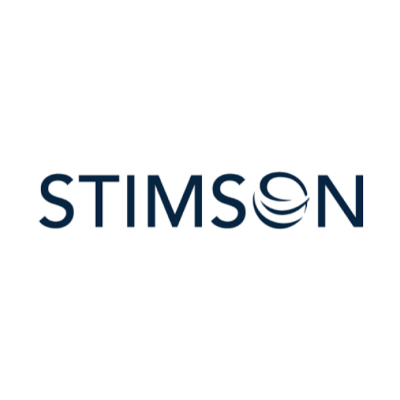 Stimson Center Article Rating
Stimson Center Article RatingSouth Korean precedent could help resolve IAEA Iran safeguards probe * Stimson Center
- Bias Rating
6% Center
- Reliability
65% ReliableAverage
- Policy Leaning
50% Medium Conservative
- Politician Portrayal
N/A
Continue For Free
Create your free account to see the in-depth bias analytics and more.
Continue
Continue
By creating an account, you agree to our Terms and Privacy Policy, and subscribe to email updates. Already a member: Log inBias Score Analysis
The A.I. bias rating includes policy and politician portrayal leanings based on the author’s tone found in the article using machine learning. Bias scores are on a scale of -100% to 100% with higher negative scores being more liberal and higher positive scores being more conservative, and 0% being neutral.
Sentiments
N/A
- Liberal
- Conservative
| Sentence | Sentiment | Bias |
|---|---|---|
Unlock this feature by upgrading to the Pro plan. | ||
Reliability Score Analysis
Policy Leaning Analysis
Politician Portrayal Analysis
Bias Meter
Extremely
Liberal
Very
Liberal
Moderately
Liberal
Somewhat Liberal
Center
Somewhat Conservative
Moderately
Conservative
Very
Conservative
Extremely
Conservative
-100%
Liberal
100%
Conservative

Contributing sentiments towards policy:
63% : A joint statement from the IAEA and the Atomic Energy Organization of Iran (AEOI) stated that Iran "expressed its readiness to continue its cooperation and provide further information and access to address the outstanding safeguards issues."59% : Creative and flexible diplomacy can ensure that information is provided while giving Iran a face-saving path to cooperation.
57% : Creative and flexible diplomacy can ensure that information is provided while giving Iran a face-saving path to cooperation
56% : To thread the needle on supporting the IAEA and providing Iran with a politically viable path to cooperation, the IAEA Board of Governors could consider a similar approach to that of South Korea.
55% : To address that concern -- or test its legitimacy -- the United States and its European partners could convey to Iran that they would view a referral to the Security Council as unnecessary, provided Iran provides credible cooperation and the IAEA is satisfied.
50% : Evidence presented by the IAEA to date suggests that Tehran conducted nuclear activities and/or stored nuclear materials at three locations which should have been declared under the country's comprehensive safeguards agreement (CSA).
50% : The IAEA also investigated a fourth location and concluded in a May 2022 report that Iran conducted activities relevant to uranium metal there that should have been declared.
48% : Holgate also suggested that the United States would support referring Iran to the Security Council, an option available to the Board if the investigation is not resolved.
47% : After returning from Tehran over the weekend, International Atomic Energy Agency (IAEA) Director General Rafael Mariano Grossi announced that he had reached an agreement with Iran on "concrete measures" to advance the agency's stalled investigation into past activities that Iran should have declared to the agency.
46% : Iran, for instance, argued that certain dual-use activities relevant to weaponization that the agency investigated were for conventional military or civil purposes.
45% : Tehran has never admitted to pursuing nuclear weapons, despite conclusions from the IAEA and the U.S. intelligence community that Iran had an organized nuclear weapons program through 2003 and continued some activities until 2009.
45% : While Iranian officials offered incredulous explanations for the presence of the processed uranium at the undeclared sites -- including blaming a third party for planting the materials -- they have also expressed concern that the investigation is a pretext for referring Iran to the Security Council and that once this investigation is closed, the agency will raise questions about additional sites to keep open the option of referring Iran back to the Security Council.
44% : Another option would be for Iran to proactively seek to end the investigation on its own terms.
43% : As the United States and Iran closed in on an agreement last August to revive the 2015 Joint Comprehensive Plan of Action (JCPOA), Tehran's demands to close the IAEA's safeguards investigation scuttled the deal.
43% : This might alleviate concerns in Tehran that the investigation is a pretext for reopening the weaponization investigation.
43% : Furthermore, if Tehran was concerned about future investigations, it could include any locations where nuclear activity was present, but not declared as required.
41% : Allowing Iran to get away with less than technically credible answers for the presence of processed uranium at three undeclared locations would undermine the agency and its safeguard's role.
40% : Unlike the IAEA's past investigation into Iran's weaponization related activities, referred to as possible military dimensions (PMD), Tehran cannot provide partial cooperation with the agency and then dispute the IAEA's conclusions.
40% : What is important is that the IAEA's questions are answered, not how Iran frames the answers.
39% : Iran argues that closing the weaponization investigation closed the option on investigating Iran's nuclear past.
39% : In cooperating with the IAEA, Iran could publicly claim that failing to declare the activities was an oversight or that the activities were not sanctioned by the government.
38% : But similar to Iran, South Korea did have past weapons intentions and it initially tried to cover up its undeclared activities.
38% : If Tehran sees the investigation as a stigma that is designed to keep open punitive options, it could proactively submit a corrected declaration for its safeguards agreement that includes information about the materials and sites under investigation.
38% : Iran could frame an explanation in whatever manner is politically viable, such as error, sloppiness, or unsanctioned experiments.
37% : They could further extend that assurance to cover future investigations into past undeclared nuclear activities, provided they are no longer ongoing and Tehran addresses any IAEA inquiries.
36% : At the same time, it should not be surprising that Iran is reluctant to own up to its past undeclared nuclear activities.
35% : For more than two years, however, Iran has failed to provide credible explanations for the presence of processed uranium at these sites.
27% : Nor is allowing Iran to continue lying about its past work.
19% : While another censure or Security Council referral would certainly result in Iran retaliating by advancing its nuclear program, the Board cannot consider Iran in a vacuum.
18% : While it may not be satisfying to allow Iran to lie yet again about its past nuclear intentions, Tehran was punished by the UN Security Council for its actions.
*Our bias meter rating uses data science including sentiment analysis, machine learning and our proprietary algorithm for determining biases in news articles. Bias scores are on a scale of -100% to 100% with higher negative scores being more liberal and higher positive scores being more conservative, and 0% being neutral. The rating is an independent analysis and is not affiliated nor sponsored by the news source or any other organization.





















